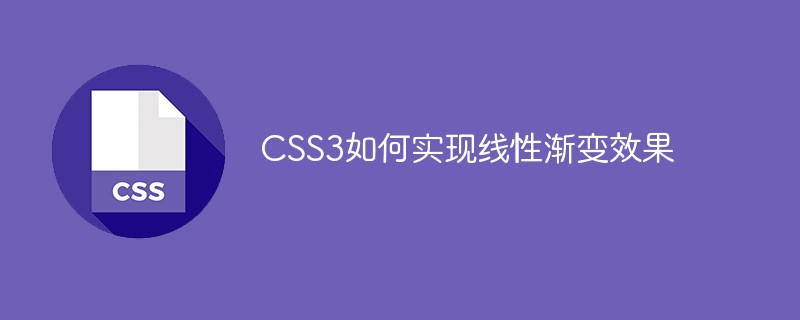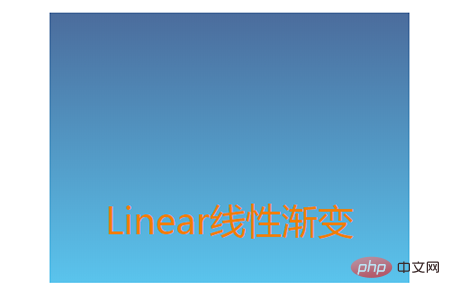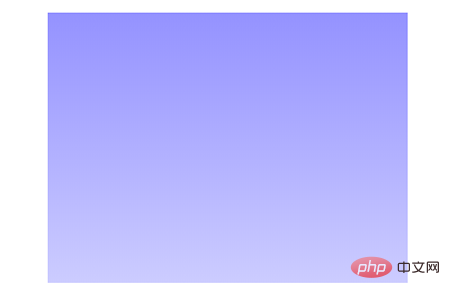
CSS3 method to achieve linear gradient effect: first create an HTML sample file; then create a div in the body; finally use the "linear-gradient" attribute to achieve the linear gradient effect.

The operating environment of this article: Windows7 system, HTML5&&CSS3 version, Dell G3 computer.
CSS3 is an upgraded version of CSS (Cascading Style Sheets) technology. We can use css3 attributes to achieve more cool page effects and enrich website content, such as the effect of linear gradient of background color!
Below we will introduce to you a common css3 gradient effect.
First of all, everyone needs to know that CSS3 defines two types of gradients: linear gradients and radial gradients.
This section first focuses onLinear Gradient-Linear Gradients.
The code example is as follows:
The effect is as follows:

As shown in the above picture, it is the color Linear gradient transitioning from #4b6c9c to #5ac4ed.
Or set the color transition from #9492ff to #ccccff, the effect is as follows:

linear-gradient attribute in css3means creating an image with a linear gradient.
By default, linear-gradient linear gradient transitions from top to bottom.
Of course, the direction of the gradient can also be downward/upward/left/right/diagonal, and define an angle.
The syntax is:
background: linear-gradient(direction, color-stop1, color-stop2, ...);
The first parameter represents the direction of the linear gradient, the second parameter represents the color of the starting transition, that is, the starting point color. The three parameters represent the color to transition to.
Note: Internet Explorer 9 and earlier versions do not support gradients.
This article is an introduction to the method ofcss3 to achieve linear gradient effect. It is very simple and easy to understand. I hope it will be helpful to friends in need!
The above is the detailed content of How to achieve linear gradient effect in CSS3. For more information, please follow other related articles on the PHP Chinese website!
 How to solve mysql query error error
How to solve mysql query error error There is no WLAN option in win11
There is no WLAN option in win11 What is the difference between hardware firewall and software firewall
What is the difference between hardware firewall and software firewall USDT price today
USDT price today mstsc remote connection failed
mstsc remote connection failed Why does the printer not print?
Why does the printer not print? Solution to failed connection between wsus and Microsoft server
Solution to failed connection between wsus and Microsoft server What does ps mask mean?
What does ps mask mean?